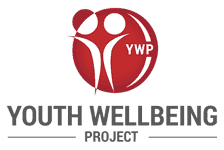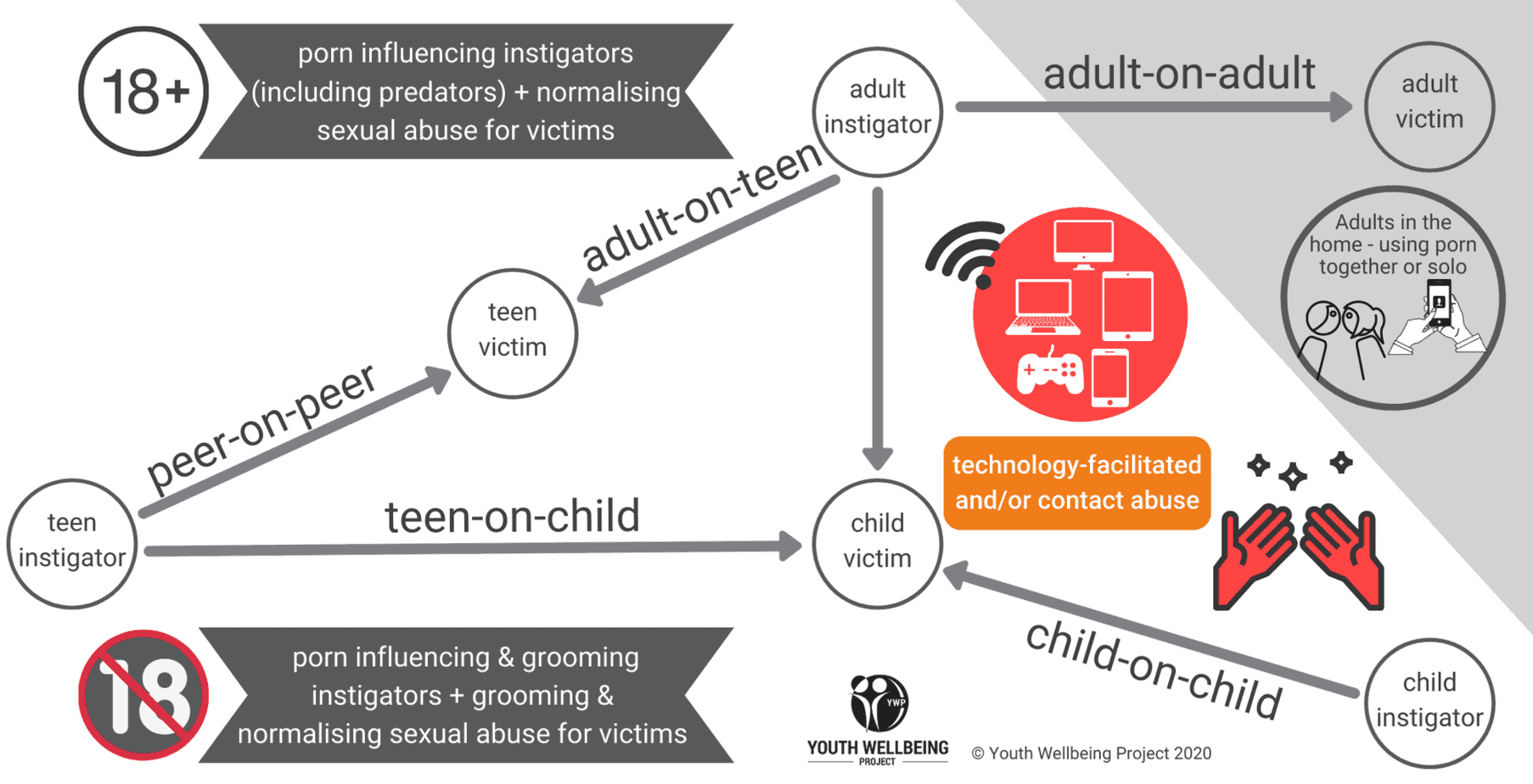Youth Wellbeing Project provides expertise specific to the role of pornography in contributing to harms on children and young people. These harms include porn’s role:
- in shaping sexual scripts, thereby influencing child and youth attitudes and behaviours and as such, their social environment.
- as a “how to” manual for children engaging in sexually abusive behaviours toward other children.
- as an influencer for youth sexual violence towards peers and children.
- in influencing sexual harassment, gender-based norms and other harmful social norms.
- as a model for technology-facilitated abuse such as image-based abuse.
- as a grooming tool for use by sexual offenders and a tool in and of itself that grooms children and normalises abuses.
- in motivating sexual offences such as rape, sexual harassment, strangulation and other (“consensual” and non-consensual) sex acts that cause emotional and physical harm.
If decision-makers fail to recognise porn’s role in influencing sexual violence, we fail children and young people and we fail the victims of sexual violence—primarily girls and women.
Earlier this year, the Parliament of Australia House Standing Committee on Social Policy and Legal Affairs called for submissions to the Family, Domestic and Sexual Violence Inquiry. Authored by Managing Director, Liz Walker, with the assistance of Louise Chung, Ruth Devereux and Carmen Layton-Bennett, Youth Wellbeing Project put forward a thoroughly researched submission which detailed the following:
- The Problem: the role of pornography in influencing sexual violence
- The role of pornography influencing adult perpetration of sexual violence
- The role of pornography influencing children and adolescents to engage in harmful sexual behaviours
- The role of pornography influencing adults to digress to child sexual exploitation material and abuses against children
- The role of pornography influencing technology-facilitated abuse
- The role of pornography with the development of sexual scripts and conditioning
- Sexual Violence during the COVID-19 pandemic
- Generational prevention: interventions for current and potential sex offenders
- A public health framework as a vehicle for change
- Policy to steer youth and child-focussed organisations
- Prevention education solutions for children and youth
- Porn awareness education in counselling and sexual violence intervention services
- The role of government and non-government agencies to respond
- Data collection to underpin research and inform policy
- eSafety: an avenue for ensuring change within school policy and educational approaches
- ACCCE: an avenue for creating awareness of the links
- Our Watch: an avenue for creating public awareness about porn and sexual violence
- Australia’s International obligations
- Technological solutions
A summary of our recommended approaches and concluding remarks are as follows:
Youth Wellbeing Project urges acknowledgement of the normalising and motivating effects that pornography has on sexual violence. In particular, we submit that pornography perpetuates negative gendered attitudes, impacts upon relationships and reinforces a culture of acceptance towards violence against women and children.
- We recommend that pornography is a more significant risk factor in children and adolescents as the studies mentioned above in this submission reflect its deleterious impact in formative years.
- Additionally, we recommend acknowledging the sexual conditioning of pornography as a risk factor for viewers digressing to materials previously inconceivable, including illegal materials such as child sexual exploitation material.
Along with identifying the causal effects of pornography, there needs to be greater recognition of the role of pornography in promoting violence; the gravity of this public health concern should be matched in national discussions.
- To protect children and provide young people with opportunities to develop without pornography’s influence, we suggest that there needs to be greater enforcement, through policy and law, of age verification on porn websites. This suggestion lies external to the submission, however, is not unrelated to the subject matter.
The Critical Porn Analysis framework utilised throughout these submissions underpins a public health approach that urges education and preventative measures; i.e. parental controls, protective behaviour education, and comprehensive sexuality education in schooling.
- Additionally, we recommend that tertiary efforts via targeted therapeutic services are required to support those harmed by pornography.
- We also urge for updated sex education that includes an increased awareness on how porn alters the way that young people understand the dynamics of sexual relationships.
We recommend that policies and practices be updated in all people-facing sectors (particularly the medical and educational sectors) to reflect pornography’s contribution to high rates of family, domestic and sexual violence.
- We propose that larger government and non-government organisations extend their scope of work to include best-practice responses that respond to pornography harms; and
- Through these changes, larger entities offer support for smaller agencies so that they can receive adequate resourcing to tackle this issue.
We are of the opinion that successful changes will only be achieved through targeted coordination of policy responses and education framing recommendations across the Commonwealth, state and territory governments, local governments, non-government and community organisations, and business.
We invite you to read our complete submission and we look forward to presenting at the public hearing for this matter in November.

